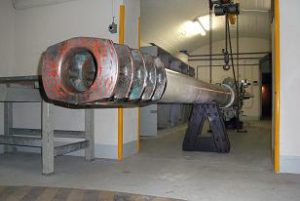This is mark Joseph “young” blog entry #313, on the subject of Verser Solutions.
With permission of Valdron Inc I have previously completed publishing my first four novels, Verse Three, Chapter One: The First Multiverser Novel, Old Verses New, For Better or Verse, and Spy Verses, in serialized form on the web (those links will take you to the table of contents for each book). Along with each book there was also a series of web log posts looking at the writing process, the decisions and choices that delivered the final product; those posts are indexed with the chapters in the tables of contents pages. Now as I have posted the fifth, Garden of Versers, I am again offering a set of “behind the writings” insights. This “behind the writings” look may contain spoilers because it sometimes talks about my expectations for the futures of the characters and stories–although it sometimes raises ideas that were never pursued, as being written partially concurrently with the story it sometimes discusses where I thought it was headed. You might want to read the referenced chapters before reading this look at them. Links below (the section headings) will take you to the specific individual chapters being discussed, and there are (or will soon be) links on those pages to bring you back hopefully to the same point here.
There is also a section of the site, Multiverser Novel Support Pages, in which I have begun to place materials related to the novels beginning with character papers for the major characters, giving them at different stages as they move through the books.
This is the tenth mark Joseph “young” web log post covering this book, covering chapters 109 through 120. Previous web log posts covering this book include:
- Versers Reorient, the first twelve chapters of the book;
- Versers Resettle, chapters 13 through 24;
- Versers Reveal, chapters 25 through 36;
- Versers React, chapters 37 through 48;
- Versers in Action, chapters 49 through 60;
- Versers Relate, chapters 61 through 72;
- Versers Challenged, chapters 73 through 84;
- Versers Refocused, chapters 85 through 96;
- Versers Mobilize, chapters 97 through 108.
History of the series, including the reason it started, the origins of character names and details, and many of the ideas, are in those earlier posts, and won’t be repeated here.
Quick links to discussions in this page:
Chapter 109, Hastings 167
Chapter 110, Slade 152
Chapter 111, Beam 31
Chapter 112, Hastings 168
Chapter 113, Brown 177
Chapter 114, Beam 32
Chapter 115, Hastings 169
Chapter 116, Beam 33
Chapter 117, Kondor 153
Chapter 118, Beam 34
Chapter 119, Hastings 170
Chapter 120, Beam 35
At this point my brain was writing the chapters faster than I could manage to type them, and I was concerned about forgetting important bits. When I would turn my mind to this chapter, I found myself thinking through the next one.
I had previously mentioned that Lauren healed people of injury and disease, and added the skills to my working character paper, but had never suggested how she did this beyond that it was magic. At this point I needed to give her a healing spell that would cure wounds entirely by speech. I spent a bit of time thumbing through my New Testament, and found two verses that would work, which was good because I needed two rituals, one for injury and the other for disease; I needed the injury one now. I liked Acts 4:29f, because it spoke of adversaries. I Peter 2:24 was better for the spell overall, but was also better for the disease cure, so I went with the Acts passage.
I kept playing this scene from different viewpoints–first as Derek’s scene, but I realized that once he was out of the room I would need another chapter for him; then as Joe’s scene, but I had shifted the previous scene to Joe. Bob was the only one left, but it worked as his scene, as he was ostensibly leading this raid.
The hardest part here was getting everything into it that needed to be there. Ultimately, Derek had to jump out the window with the Princess, but everything before that had to happen without feeling rushed. The landing and the battle in the room would both be delayed.
It occurred to me that it wouldn’t really be credible for Beam simply to walk out of the bunker, particularly given that Kondor and Slade had needed a code to open the door of a different high tech bunker in the previous book. I thus decided I had to have him face the locked door, and find yet another way for him to open it.
Kyler had suggested that Turbirb’durpa could psychokinetically force open the doors, and that he did so on the original space station; it had not been clear to me that he had done that, but that was more power than I wanted Bob to have at this point, so I decided he must have opened those doors by reading the codes in the minds of people who knew them and telekinetically pushing the buttons. There being no people around, he could not do that here.
I thought of triggering the fire alarm as the way to get the door open, but decided there wouldn’t be familiar fire boxes on the walls. I then thought of setting off the smoke detectors, but I needed a reason for Beam to think of that, so I had him light a cigarette. I also decided that a cigarette would not be enough to trigger the alarm, because they were using gunpowder weapons which while producing relatively little smoke by comparison with early versions still produced some. However, I had let Dawn load an undefined collection of objects including grenades, and figured that she would have smoke grenades in the batch; I also decided that the smoke grenades would be flash-bangs.
I had envisioned Lauren hearing the news over the radio, but I also wanted to work in the part about wanting a drink, and once I had the guards talking it was natural that they would talk about the events of the day, which neither of them witnessed (one on duty, the other sleeping). I had debated whether the part with the pipe would be part of this chapter or another, and decided that it would have to be this chapter.
I had been thinking for a while that I had to replace Princess with something more appropriate. I discussed it with Kyler, noting that Calipha was technically the wife of a Caliph, but that the next rank down was Amir/Amira. I could have pushed the Caliph to Shah, but then I wanted him to be impressed by the fact that Slade was allied to the Caliph of the West Wind, and I couldn’t change that. At this point, I committed to making her Calipha, calling the gang Caliphae but recognizing that they were technically all Amirae.
In my musings about this chapter I recognized the problems with Derek’s descent, and used the opening paragraphs to focus them in my own mind as he recognized them himself. I also worked out how he would solve them, putting together the pieces much as they appear in the chapter.
I was running out of outlined chapters in which to accomplish everything, and not certain I was not going to tighten the whole thing, but I couldn’t not have Beam teach the others how to shoot. I also needed to work out how the rail gun worked, which evolved in my mind through several stages before I put the batteries in the clips.
I thought this would be longer, but it did enough. I wanted her to suggest to the jailer that God had provided the water, and that she was now asking for food, which He might somehow provide if the jailer didn’t. I don’t know whether there’s going to be food for her.
When I reached this point in the Beam story, I had finished everything else and created an outline which left me four chapters to finish his story. I decided that probably was not enough, so I moved what was going to be 117 Beam 32 up to 116 Beam 32, pushing 116 Kondor 153 down to 117 Kondor 153, and expecting to put in more Beam chapters from there. This was good, in part because I had 122 chapters in my outline and recognized that this was not going to divide well into sections for online publication (being 2*61, both prime numbers), so changing that number would be an added benefit.
I used something I learned from watching Ed Jones run games: I didn’t need to know how many beasts were attacking, I only had to have them run out when the party had become vulnerable.
I wanted the cliffhanger here, even though I knew what happened next.
I had known for quite a while that the Amir was going to be shot, and had concluded that it would be Zeke who pulled the trigger. Some of that had come into focus in my mind, but the part about how to get the people from there to the palace was still a bit weak, and was pasted together as I wrote it.
I also wanted to avoid having a chapter in which Slade reported the events of the raid, so I separated him from the group at this point.
I was inserting chapters and renumbering to make room for a longer Beam story than anticipated, bumping everything.
The resolution of the wolf attack was written immediately after the attack itself, but I wanted the cliffhanger, and I wanted the resolution to go directly in to the crying scene, although it was late so I postponed writing the crying scene and went to bed instead. I think I got what I wanted from it.
I was going to do this as a beheading on a chopping block, but the guillotine was an abrupt decision. It was a better choice.
The joke about the engineer probably doesn’t work.
I was still accelerating the Beam story to finish it against the others. I needed them to recover the property that was not at the wedding, and wanted Bron to have some blacksmithing tools; besides, I had not had the Pyronics at the wedding and didn’t think there was any logical reason for it to be there despite the fact that Beam had nearly everything else he owned with him there.
I had realized that the hammer would provide a beacon back to the bunker almost as soon as I put it there, but I wasn’t completely certain I was going to use it. I had tinkered with the idea that the power supplies in the crawlers could be tapped to charge weapons, but decided that would make the Pyronics too easy to use.
I had also already decided that the way to keep Beam’s equipment within weight limits was to give the food to Sophia and the Pyronics to Bob, neither of whom are anywhere near their weight limits otherwise. Beam’s party is equipment-heavy, so they have to share the load, and since they don’t know that they have limits on what will go with them, they have to do so for reasons that make sense within their situations and knowledge.
This has been the tenth behind the writings look at Garden of Versers. If there is interest and continued support from readers we will endeavor to continue publishing the novel and these behind the writings posts for it.


